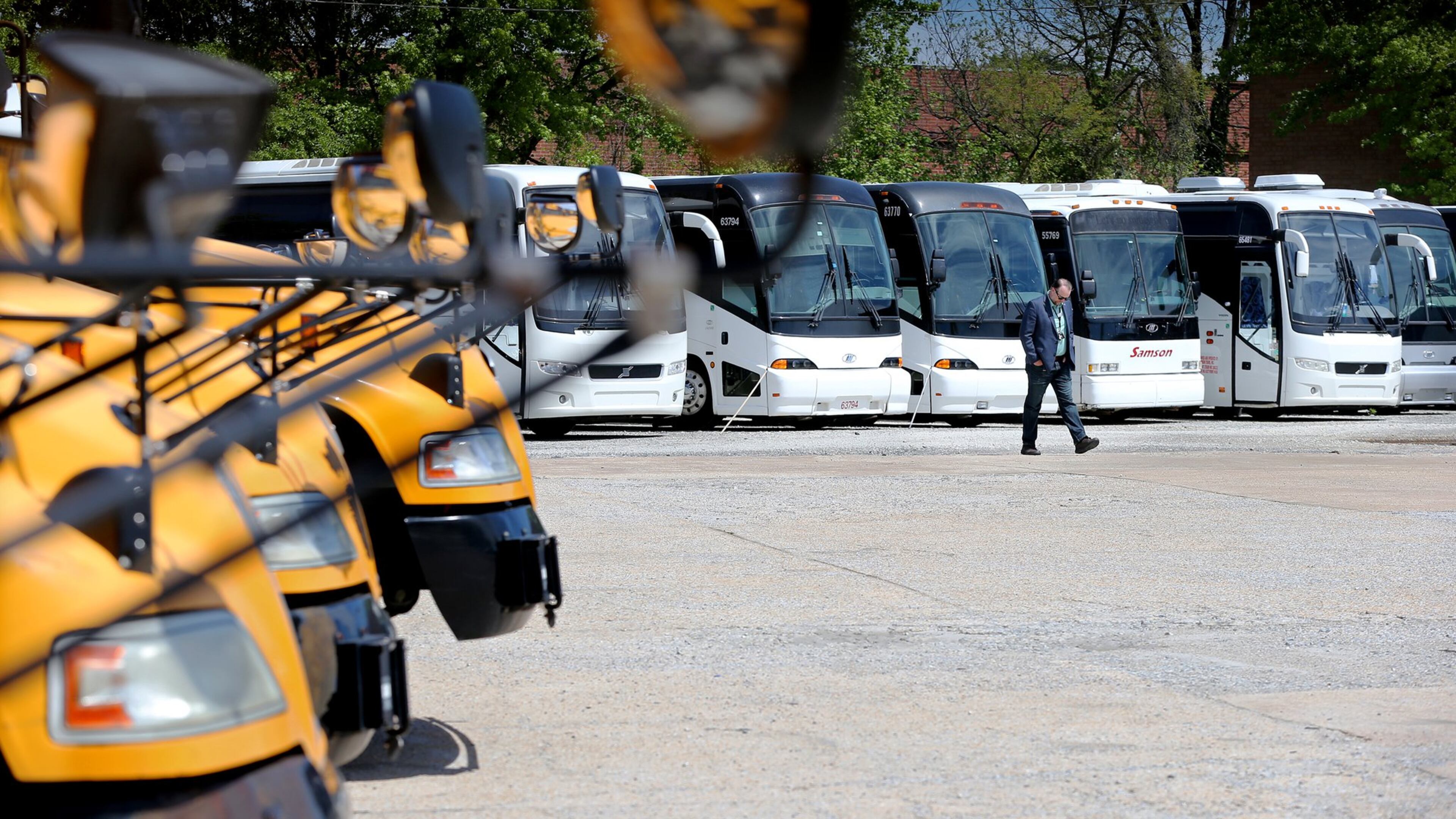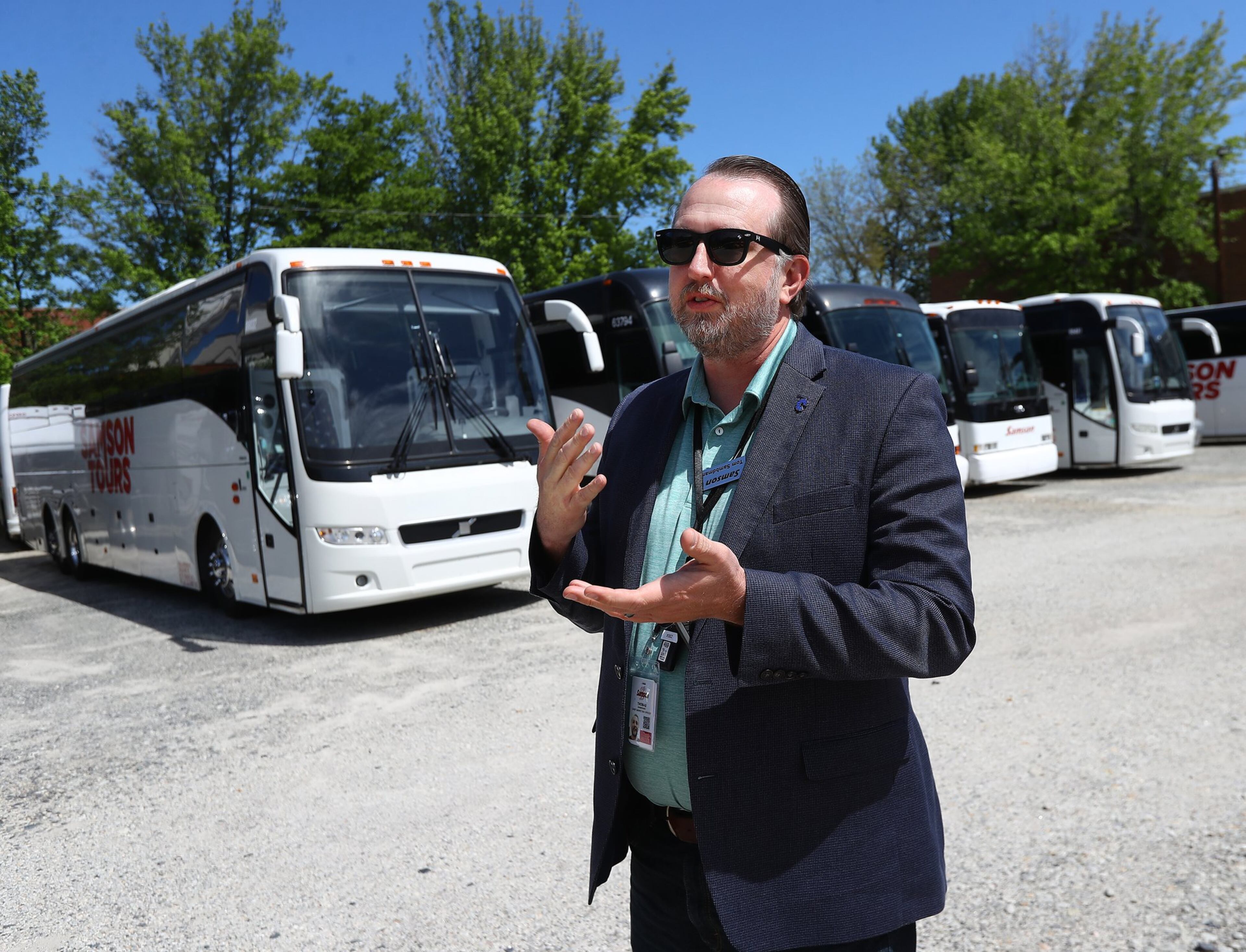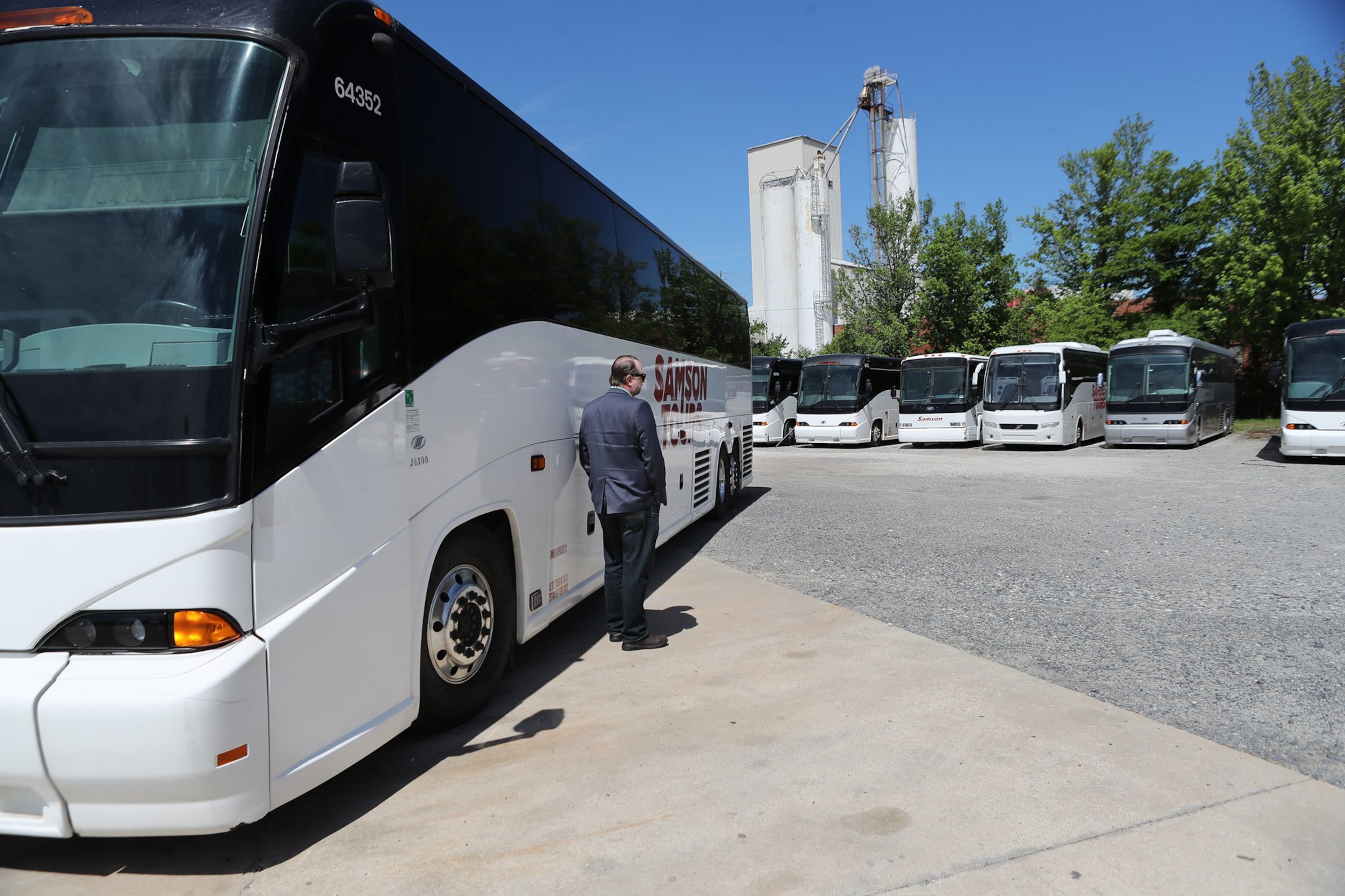Relief loan program frustrates Georgia small business owners

About 60 buses sit idled at Samson Tours in Hapeville, because schools are closed, the military has halted in-person recruiting and group vacations have been canceled. Most of Samson's 72 workers are idle, too.
The company obtained $1.1 million in loans through the federal coronavirus relief program for small businesses. Still, Samson faces a dilemma. It probably won’t run its buses again until August, but the loan money must be spent on payroll within the first eight weeks for the debt to be forgiven.
“I don’t have work for most of them to do,” said John Sambdman, Samson’s CEO. “I can’t just pay for busy work.”
Sambdman is one of thousands of small business owners who face problems with the $349 billion rescue loan program, part of the $2.2 trillion CARES Act federal stimulus plan approved in late March by Congress and signed by the president.
Some couldn’t submit applications due to technical problems with the Small Business Administration’s website. Some have applied but have not yet been approved, while still others have been approved but don’t have their money yet. Some are struggling to comply with conditions to have the loans forgiven.
Time and money are tight. Funds for the program may run out by Thursday, according to Bloomberg. Congress and the White House are discussing a $250 billion expansion, but nothing has been approved.
Meanwhile, 11% of small business owners recently surveyed by the U.S. Chamber of Commerce said they're less than one month from closing permanently.
Roughly 30,000 emergency loans for small Georgia businesses had been approved as of early Wednesday. That represented about 10% of Georgia-based businesses eligible for relief loans, based on SBA figures and the estimated number of qualified businesses. The agency had approved $301 billion nationwide, including $6.7 billion to Georgia businesses.

The $349 billion program probably won’t meet the urgent needs of most Georgia’s small business owners, said Doug Williams, CEO of Atlantic Capital Bank in Atlanta.
“It’s a good start but the discussed $250 billion needs to be added quickly,” he said.
The COVID-19 pandemic has forced thousands of small businesses to close temporarily or significantly scale back operations. Few have enough cash to withstand a weeks-long shutdown.
“We are extremely concerned that the funds will dry up before the small businesses are even able to navigate through the process in time,” said Nathan Humphrey, state director for the National Federation of Independent Business.
Jeffrey Bullis, a Marietta-based executive with Principal Sales Group, which sells allergy test kits, said he’s had trouble simply submitting an application.
Bullis immediately applied for a $10,000 grant through a separate federal relief program when it became available. As of Wednesday afternoon, he still hadn't received the money and it was still unclear if he'd been approved. Principal is generating no income because doctors have closed offices, where all his sales took place.
“I thought I would have had something in our account by now,” Bullis said. “Our business is in limbo. We’ve basically shut down Principal.”
Some entrepreneurs may never get their businesses started. Ashanti Jaha, a registered nurse in Lithonia, spent $12,600 for supplies to make uniforms for health care workers. But the federal program stipulates that an applicant’s loan amount is based on past sales. Since Jaha’s company hasn’t launched yet, she doesn’t have historic sales figures.
Meanwhile, the companies in China and Singapore where she bought her supplies have closed due to coronavirus relapses and won’t refund her money.
“I’m out $12,600 and no scrubs to show for it,” Jaha said.
The SBA has not named all the Georgia-based companies that have been approved. Individual businesses companies can disclose that information if they choose.

On Wednesday, Sambdman said he’s still trying to figure out what to do with his loan. He’s got $150,000 of unpaid vendor invoices for things like vehicle parts and bus cleaning services. He could pay those bills, but then his $1.1 million of loans won’t be forgiven.
Sambdman may use the money to pay off more expensive debt, since the relief loan only charges 1% interest. But he and his brother, Tom, who’s also an executive at Samson, have already paid company expenses on their personal credit cards. He’s likely to be stuck with lots of debt when the economy reopens.
The debt might not be a problem in the short term, except he doesn’t expect the charter bus industry to fully recover for many months.
“I might be lucky to get back 50% of the business that I had” before the coronavirus shutdown, he said.



